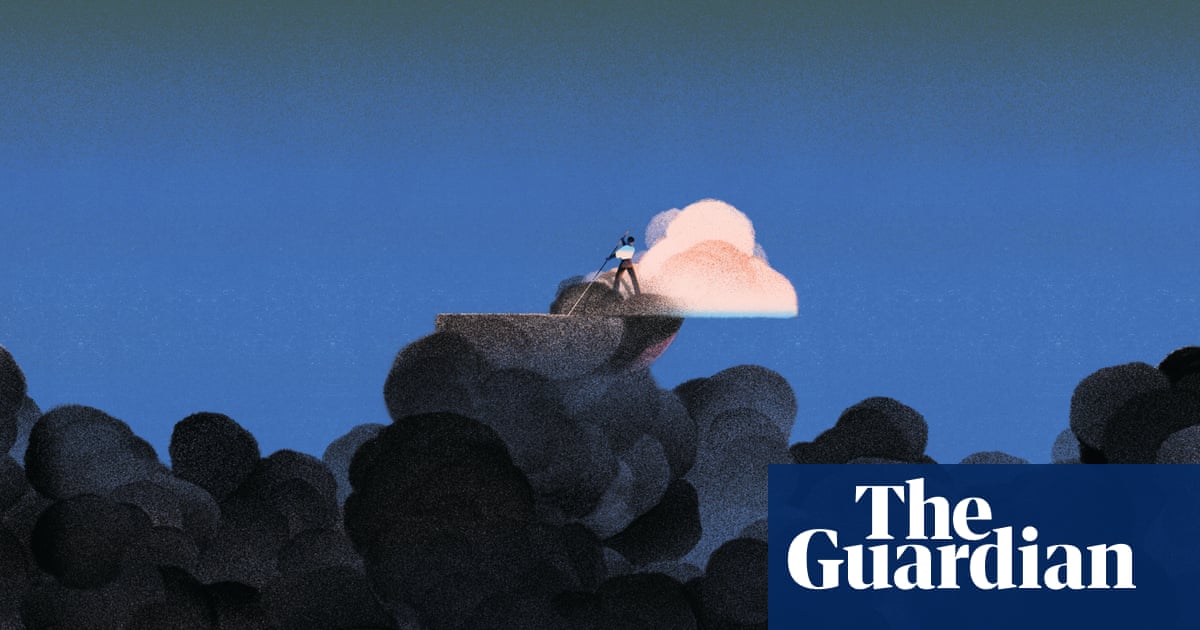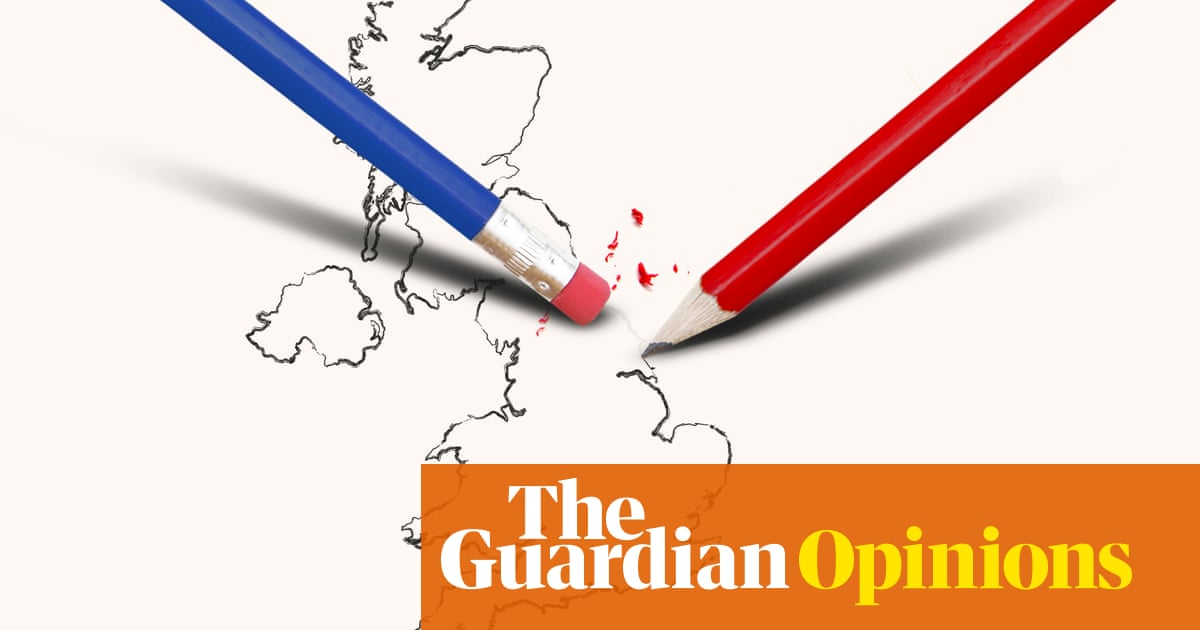
Afew years ago, a popular pub quiz question involved naming 10 famous Belgians. The answers often revealed more about British cultural ignorance than Belgium’s ability to produce international celebrities, given that the fictional Tintin and Hercule Poirot were the best many could come up with.
The game has got easier since the rise of Angèle, a stridently feminist Belgian pop singer-songwriter who shot to fame in 2016 after posting short clips singing covers and playing the piano on Instagram. She was young, talented and not afraid to make fun of herself, pulling faces and sticking pencils up her nose. Her 2018 debut album, Brol, sold a million copies; by 2019, she was a face of Chanel. “I’d always wanted a career in music, but I was thinking more of working as a piano accompanist,” she says, folding into an armchair at a five-star boutique hotel near the Paris Opéra. “I really didn’t expect it to happen like that.”
If Angèle, 26, is known in the UK, it is for her duet with Dua Lipa on the British singer’s 2020 song Fever (“There’s something very natural between us,” Angèle says), but in France and Belgium she is a household name performing to packed arenas. She has just released her second album, Nonante-Cinq (95, after the year she was born), 12 introspective disco-pop tracks with deceptively naive, childlike vocals. It follows a Netflix documentary about her life. “The success came from nowhere, almost from one day to the next,” she says. “It was very rapid and intense. I was very surprised by it all. I still am.”
This intensity ramped up in 2017 when she agreed to talk to Playboy. Despite being asked not to, the magazine used a photograph of Angèle topless and holding two peppers in front of her breasts. Feeling humiliated and betrayed, she says she cried for a week.
“They didn’t even write about the music I was doing, but just the fact that I was sexy,” she says. Amid the fallout, “I was also reduced to being a woman who wanted to draw attention to herself by sexualising her image, as if that wasn’t something good, while being sexy and sexual shouldn’t be a problem”. Playboy breaking her trust, she says, “was a hard lesson”.
Her response was Balance Ton Quoi (Squeal on What), a song that played on the French #MeToo phrase Balance Ton Porc (Squeal on Your Pig) and instantly turned her into a feminist figurehead.
“As a girl and young woman, I have suffered lots of sexist aggression, like the majority of women. There’s the harassment in the street and in relationships and there are sexist remarks and behaviour in the [music business],” she says, adding that it was seeing the lack of reaction to her brother, the rapper Roméo Elvis, performing shirtless that hammered home the sexist double standard. “Nobody remarks on it when he does it, but if there’s a topless picture of me in Playboy the discourse is pejorative. People don’t say: wow, isn’t that great and isn’t she lovely; they think it shames me.”
She wrote Balance Ton Quoi “because I knew what these women were talking about from my own experience. This song suddenly became a feminist hymn at protests – I found myself a bit of a feminist icon at 23 years old when I still had many things to learn.” Belgium and France, she says, “are still behind on sexism. Violence against women is still treated as a taboo subject and one that’s difficult to address and is minimised.”
The video that accompanies the song is lighthearted but loaded, with Angèle running a courthouse and an anti-sexism academy. “We wanted to show what we have to fight if we are feminists and we want to combat the patriarchy, but we also wanted it to be beautiful, accessible and light and funny, because I prefer to pass these messages with humour; I think it’s the way to get even the hardest message across.” On a similar note, the cover of Brol shows a young Angèle missing a front tooth. “I think it’s super-important to make fun of oneself. It’s the best of weapons. In the end, it’s a way to stop the hurt, because there’s a certain power in mocking oneself before others do it.”
Angèle understood the importance of taking control of her identity even before the Playboy violation. She was born Angèle Joséphine Aimée Van Laeken, the second child of famous parents – her mum is the actor Laurence Bibot and her dad is Serge Van Laeken, AKA the singer Marka. She says she had a “lovely childhood”, but her answers suggest a certain tension. Being “the daughter of” well-known parents and later “the sister of” Roméo Elvis has evidently rankled at times.
“It wasn’t my parents who encouraged me to be a [professional] singer – in fact, I kept them in the dark about what I was doing, because I didn’t want them to interfere. I didn’t want them to take all the credit, either,” she says.
“I don’t think they’d have discouraged me, but they’d have been afraid, because it was so far above what they had done in their careers, and it was so huge and out of control at one point that they would have worried. Also, they would probably have wanted to help and it would have been complicated to say no.”
Given her parents’ fame, she must be used to being recognised in the street, I say. She quips: “When we were young, my parents were recognised, but only about once every month. Now, I’m recognised every day.”
She was upset when a French television presenter outed her as bisexual before she could tell her parents and grandmother, but she can shrug about it now. Even in her “open family”, she says her parents were “very surprised” when she brought a girlfriend home.
“And my mother’s in the theatre surrounded by loads of LGBT people! If I had said to my parents: I think I like girls, then it would have been fine, but I didn’t warn them, so it was a shock for them. I think I always knew even when I was young, but when I was 15 and at school it really wasn’t cool to be bisexual. It was even a bit shameful.” Today, she says she is single, but she admits she probably wouldn’t say if she wasn’t. “I have understood that I must be vague about these things to protect myself and protect my friends.”
She experienced a social media backlash when Roméo Elvis was accused of sexually harassing a young woman, for which he later apologised. “I found myself in the middle of a story that was nothing to do with me,” Angèle says. “People turned it around and said: ‘You’re feminist and your brother did that?’ Well, what can I say?
“Was I angry with him? That was something else between us, but I was angry about how people tried to make me responsible, who looked to blame someone female. To me, it was proof once again that, when we speak about feminism, people are afraid and they seek to discredit that fight. I don’t know if I was attacked more than him, but I was attacked without reason – and really violently on social media.”
Fame, then, has been a steep and not entirely pleasant learning curve – the French newspaper Libération described Nonante-Cinq as “listening to a friend who thinks you’re their psychologist and has the disagreeable habit of calling you at all hours to talk about themselves” – but Angèle says she is bien dans sa peau (happy in her skin) and not too bothered about becoming an international star.
“I’m very happy to be able to go to England and walk in the street and nobody knows me,” she says. “I like to be able to do concerts from time to time and have a big audience, but I am happy to not be that well known.” British pub quizzes be damned: “In Belgium and here in France, that’s fine for me for the moment.”












